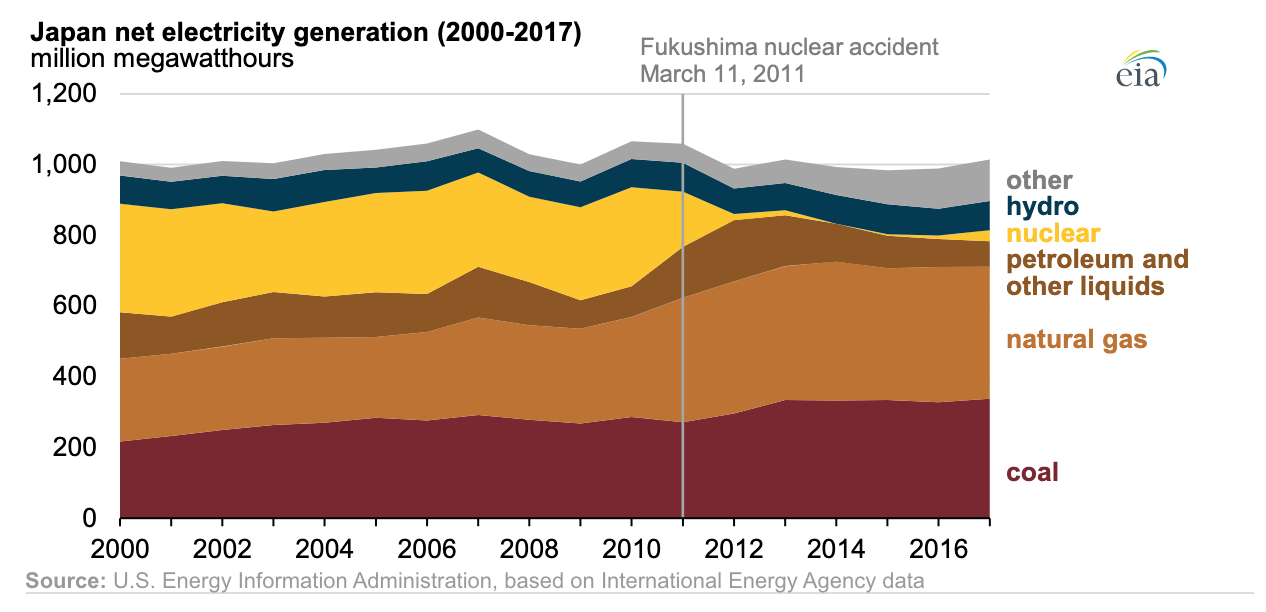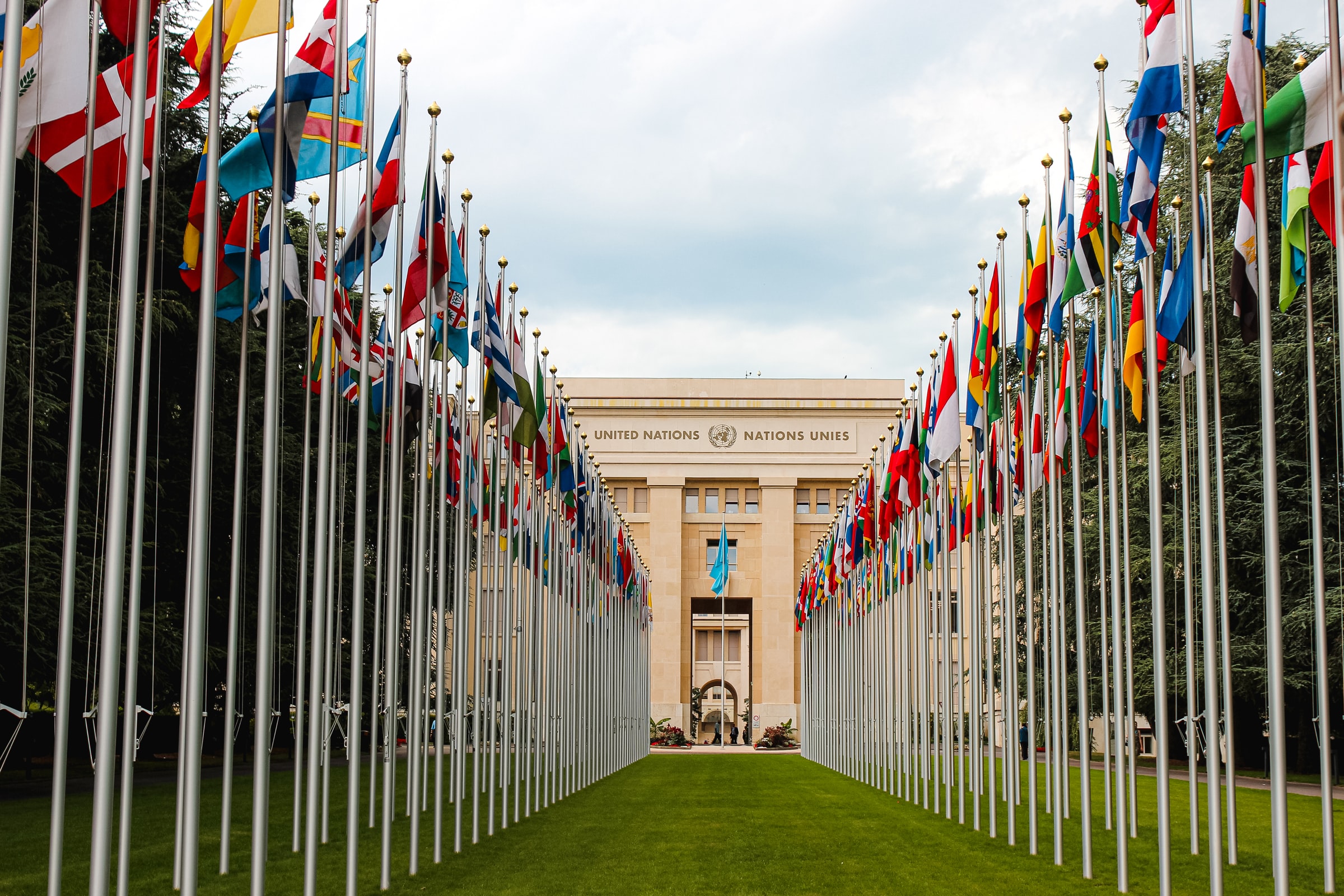
Following the Great East Japan Earthquake in 2011 many hoped that Japan would abandon nuclear energy, embrace decarbonization and turn to renewables. So far this has been all too far from the truth, with the share of renewables in Japan hovering around the 18% mark in 2018, significantly lower than other European countries for example. Yet the problem is not just a lacklustre effort to promote renewable energy, but also a continued reliance on coal which forms almost 30% of the country’s energy mix.
“Although the amount of Japanese companies and local governments that have committed to net-zero emissions by 2050 is increasing, it is difficult for them to procure as much renewable energy as they need. This is because energy policy in Japan is still very reliant on coal and the infrastructural system for renewable energy, such as grid connection, is not organized enough”, explains Ken Tanaka, the Japan Climate Initiative Secretariat (JCI). The JCI is a network of Japanese non-state actors such as companies, municipalities, research institutions and civil society organizations that are seeking to decarbonize Japanese society. The network looks to create communication pathways between actors so that solutions and ideas can be exchanged for climate action in Japan. Creating these channels of information exchange is fundamental for coordinated action between public and private initiatives and creates a solid base for decarbonization efforts.
It is not the time to sit back and wait for government directions, it is time to take action immediately
What is the JCI’s role in coordinating decarbonization efforts in Japan?
The JCI is creating strong momentum in Japan towards the decarbonizing of society. We encourage Japanese non-state actors to commit to ambitious emissions reduction targets and take concrete actions to achieve these targets through different activities. Recent initiatives include the Annual symposium (Japan Climate Action Summit: JCAS) to develop strong momentum for taking climate action, as well as Seminars and workshops for JCI signatories to share knowledge and experiences with each other and promote more concrete measures.
In addition one of the most important roles of the JCI is to deliver strong messages as a collective voice of Japanese non-state actors to the national government so that we can call for more ambitious climate policies such as with the Nationally Determined Contributions. Clear and ambitious goals and pathways by the national government will allow Japanese non-state actors to elevate their own climate actions.
Why is Japan struggling with the transition to renewable energy?
This is largely because energy policy in Japan still relies on coal and the infrastructural system for renewable energy, such as grid connection, is not organized enough.
That said, since the Great East Japan Earthquake in 2011, renewable energy production has been increasing, especially with regards to solar power. However, Japan is still relying on fossil fuels like coal. The most important step would be for the national government to change its energy policy, increase renewable energy targets and phase out coal-fired power plants as soon as possible.

How are companies and local governments setting the standard and demanding change through their actions?
If Japan is widely considered reluctant to decarbonization, this reputation could hinder Japanese businesses from developing globally and, in some cases, Japanese companies including small and medium-sized enterprises could end up being excluded from supply chains.
There are a lot of non-state actors committed to climate action. Japan is the second-largest country (after the US) in terms of the number of companies that have set targets with the Science Based Targets Initiative (SBTi). Many Japanese companies have also joined the RE100 initiative and agreed to increase transparency by submitting to the TCFD. There has also been a trend in local governments committing to net-zero emissions by 2050. Many of these non-state actors are JCI signatories.
Many non-state actors are therefore taking concrete actions to address the climate crisis. What they need is the current administration’s leadership, with ambitious targets and policies so that they can invest more in climate action and count on the support of the national government.
The more non-state actors speak up for what they need, the bigger the impact we can have on national policies.
On 10 June, the Environment Minister, Shinjiro Koizumi, engaged in discussions with the private sector regarding the implementation of a “green recovery”. What is the role of non-state actors in these dialogues with the government?
7 JCI member companies including several CEO’s participated in the meeting with the Minister of the environment. Many of them asked the Minister to include measures to support renewable energy procurement in the green recovery packages. Although nothing concrete was decided in the meeting, the Minister showed his intention to continue to engage in dialogue with the JCI.
It is important for non-state actors to speak up for what they need from climate policies because now is not the time to sit back and wait for government directions, it is the time to take action immediately and for that, we need strong leadership and support from the national government. Furthermore, the national government needs to know what non-state actors such as businesses and local governments really need. The more strongly and sharply non-state actors speak up for what they need, the bigger the impact we can have on national policies.
The JCI has been taking on the role of the bridge between government and non-state actors through dialogues with policymakers and issuing statements for policy advocacy.
In the context of the current pandemic, is focusing on a “green recovery” a potential opportunity for effective climate action?
Japan has just started moving forward in its economic recovery from the COVID19 crisis and we believe that Japanese non-state actors that were already committed to implementing climate action will continue to take steps towards decarbonization.
The Cabinet of Japan adopted a second version of the economic stimulus package but this only includes two points related to decarbonization: digital transformation, and support for self-consumption type solar power plants. Fortunately, the Minister of the Environment is trying to take an active role both domestically and globally in terms of green recovery. Therefore, it is important for the JCI to keep delivering its messages to key stakeholders in order to make Japan’s economic stimulus greener from the perspective of decarbonization.






